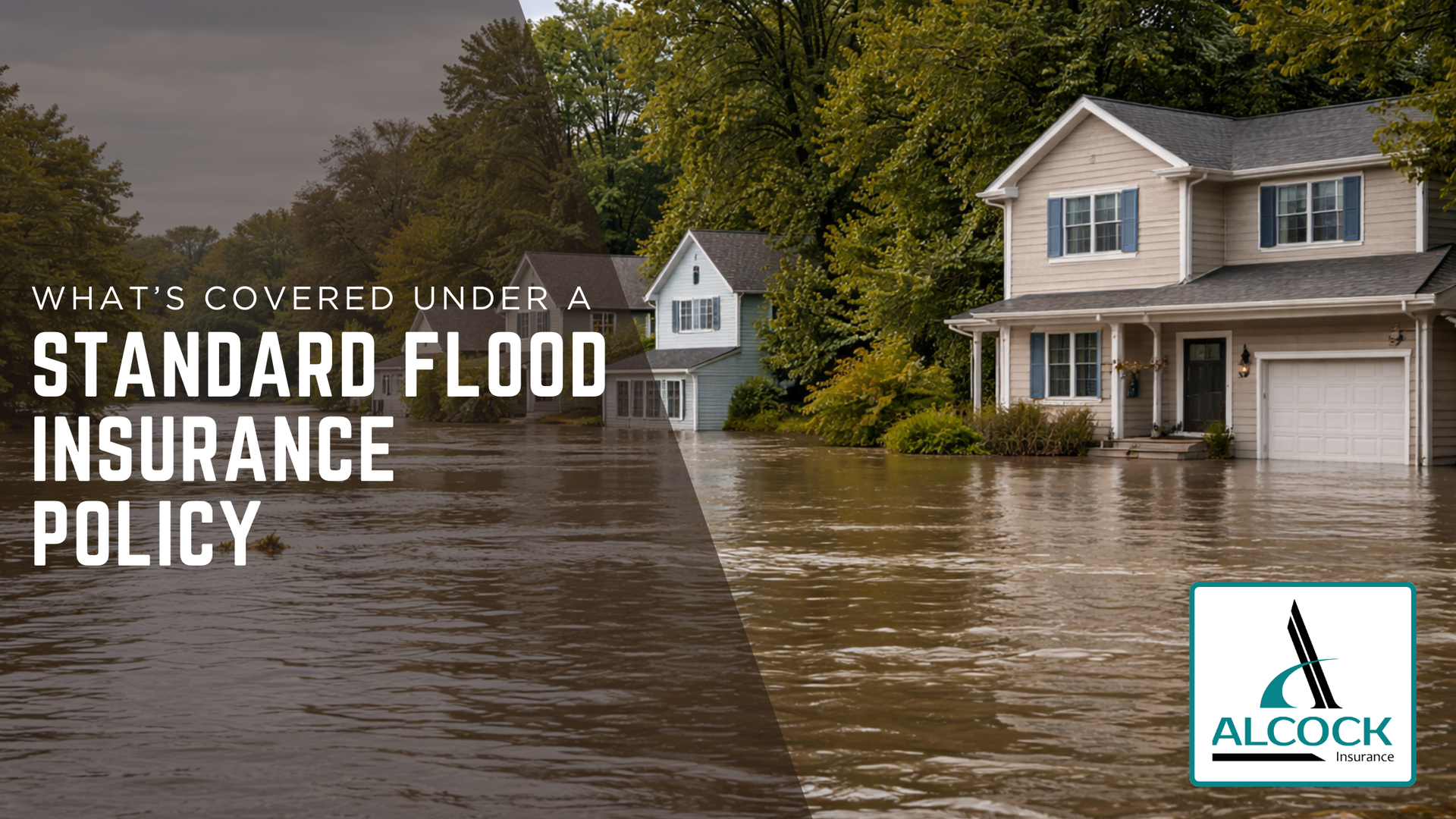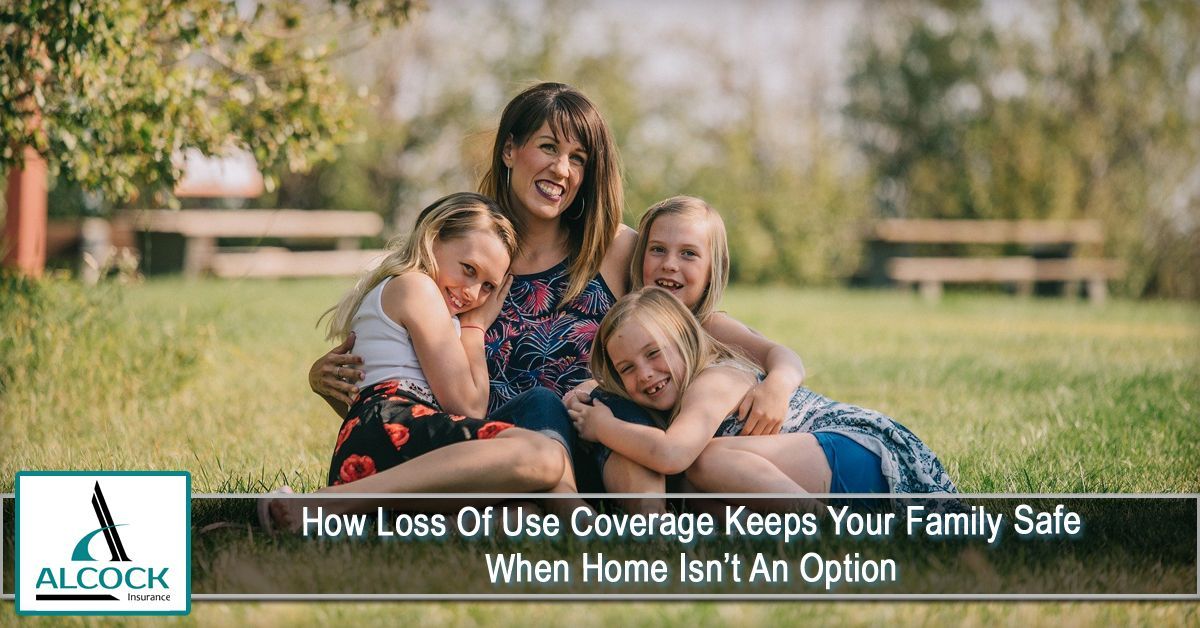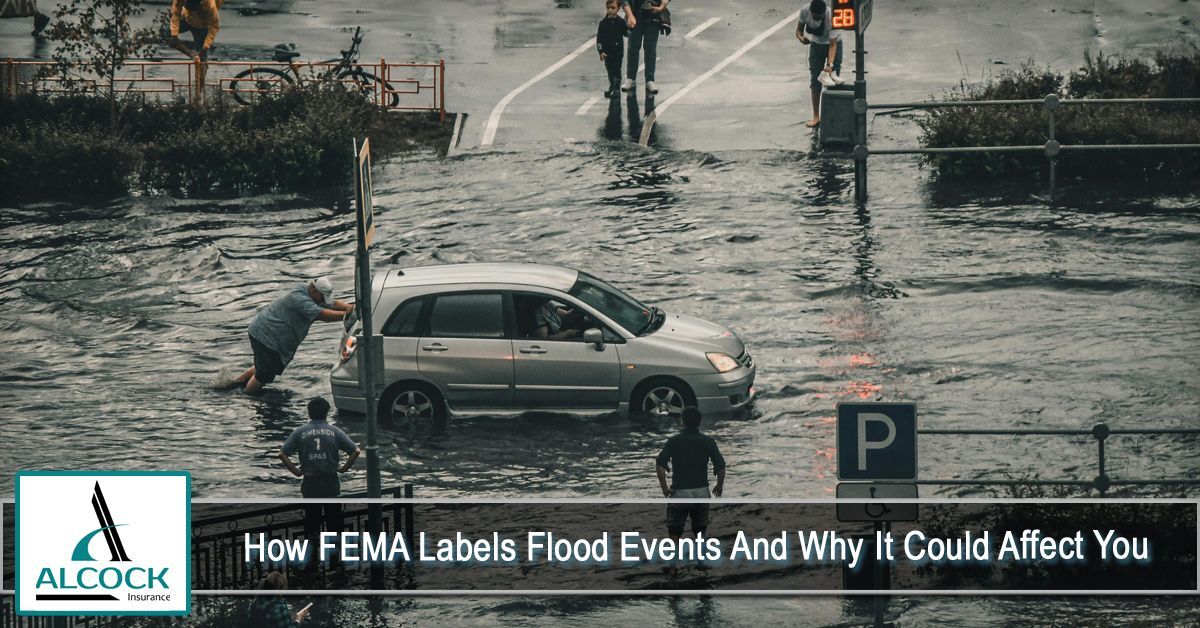Alcock Insurance & Risk Management Services, LLC Blog

January 20, 2026
Whether you’re required to carry workers’ compen sation insurance depends on factors like the number of employees you have, the type of work they perform, and state-specific regulations. Many business owners are surprised to learn that even a single employee—or certain contractors—can trigger a workers’ comp requirement. In our years of professional service advising employers in Greenville, NC, we’ve found that understanding these rules early helps businesses avoid penalties, lawsuits, and costly coverage gaps. What Workers’ Compensation Insurance Is Designed to Do Workers’ compensation insurance provides financial protection for both employers and employees when work-related injuries or illnesses occur. Core Purposes of Workers’ Comp This coverage is intended to: Pay for m edical treatment related to workplace injuries Replace a portion of lost wages during recovery Provide disability or death benefits when applicable Protect employers fr om most employee injury lawsuits It functions as a no-fault system, meaning benefits are paid regardless of who caused the injury. Why Workers’ Comp Requirements Aren’t the Same for Every Business Workers’ compensation laws vary by state and are influenced by business structure and risk level. Factors That Determine Requirements You may be required to carry workers’ comp based on: Number of employees Full-time vs. part-time status Type of work performed Industry classification Business entity ty pe Because requirements differ, assumptions based on another business’s situation can be risky. Employee Count: The Most Common Trigger The number of people you employ is often the starting point. Who Counts as an Employee Depending on regulations, the following may be considered employees: Full-time workers Part-time workers Seasonal employees Family memb ers on payroll Even a single employee can trigger a coverage requirement in many cases. Independent Contractors vs. Employees Misclassifying workers is a common and costly mistake. Why Classification Matters Independent contractors typically: Contro l how and when work is performed Use their own tools Work for multi ple clients However, if a worker functions like an employee, workers’ comp may still be required—even if they’re paid as a contractor. Industry Risk Levels Affect Requirements Higher-risk industries face stricter expectations. Industries Commonly Required to Carry Workers’ Comp These often include: Constructio n and contracting Manufacturing Landscaping and maintenance Transportation and delivery Healthcare and per sonal services The greater the injury risk, the more likely coverage is mandatory. Sole Proprietors and Business Owners Business owners often wonder if they need coverage for themselves. Owner Coverage Considerations Sole proprietors may be exempt but can often opt in Partners or LLC members may have similar options Corporate officers may be required to carry coverage Electing coverage can protect owners from medical costs and lost income after a workplace injury. What Happens If You Don’t Carry Required Coverage Failing to carry workers’ comp when required can have serious consequences. Potential Penalties State fines and penalties Stop-work orders Personal liability for medical costs Lawsuits from injured employees In our professional experience, the cost of non-compliance far exceeds the cost of proper coverage. Workers’ Comp and Subcontractors Hiring subcontractors doesn’t automatically remove your responsibility. When You May Be Liable You may be responsible if: A subcontractor lacks their own workers’ comp The work performed is part of your core operations The subcontractor’s employee is injured Verifying certificates of insurance is essential risk management. How Payroll and Job Duties Affect Coverage Workers’ comp premiums are tied to risk exposure. Key Rating Factors Insurance costs are influenced by: Total payroll Job classifications Claims history Safety practices Accurate payroll reporting ensures proper coverage and avoids audits surprises. Workers’ Comp vs. Employer Liability Workers’ compensation includes employer liability protection. What Employer Liability Covers This portion of the policy may respond to: Claims alleging employer negligence Lawsuits outside the workers’ comp system Certain third-party injury claims Both parts work together to protect the business. Hiring and Growth Considerations As businesses grow, compliance requirements often change. Companies expanding their workforce near commercial corridors, service areas surrounding Uptown, or businesses supporting the ECU community frequently cross employee thresholds faster than expected. These transitions regularly prompt coverage reviews for employers operating in Greenville, NC, especially when moving from sole proprietor to staffed operations. Common Myths About Workers’ Comp Requirements Misconceptions often lead to compliance issues. Myths We Commonly Hear “I only have one employee, so I’m exempt” “Independent contractors don’t count” “Office workers aren’t a risk” “I can wait until someone gets hurt” In reality, requirements often apply sooner than business owners expect. How to Confirm If You’re Required to Carry Coverage A proactive review prevents problems. Smart Steps to Take Review state-specific workers’ comp rules Evaluate worker classifications Assess industry risk level Review contracts and client requirements Professional guidance helps ensure accuracy and compliance. When to Reevaluate Workers’ Comp Needs Workers’ comp requirements aren’t static. Common Triggers for Review Hiring your first employee Adding part-time or seasonal staff Changing job duties Business expansion or restructuring Regular reviews reduce compliance risk. Protecting Your Business Starts with Knowing the Rules Determining whether you’re required to carry workers’ compensation insurance isn’t just about compliance—it’s about protecting your employees, your finances, and your business’s future. Understanding your obligations helps you make informed, responsible decisions. At Alcock Insurance, we are committed to offering our clients a wide range of comprehensive and affordable insurance policies. We go above and beyond to ensure that we meet your unique needs with tailored solutions. To find out more about how we can assist you, please reach out to our agency at (252) 353-1700 or CLICK HERE to request a free, no-obligation quote. Alcock Insurance Address: Greenville, NC Phone: (252) 353-1700 Website: https://www.alcockinsurance.com/

January 20, 2026
A standard flood insurance policy helps cover damage c aused by flooding to your building and certain personal belongings, but it does not cover everything. Understanding what is included—and what is excluded—can help property owners avoid costly surprises after a flood event. In our years of professional service assisting homeowners and business owners in Greenville, NC, we’ve seen that clarity around flood coverage is essential for effective financial protection. Why Flood Insurance Is Different from Other Property Coverage Flood damage is specifically excluded from most homeowners, renters, and commercial property insurance policies. Flood insurance exists to fill that gap, but it operates under its own rules, definitions, and coverage limits. Flooding is generally defined as: An overflow of inland or tidal waters Rapid accumulation of surface water Mudflow caused by water movement Collapse of land along a body of water due to erosion If damage fits this definition, flood insurance—not standard property insurance—applies. The Two Main Parts of Flood Insurance Coverage Flood insurance policies separate coverage into building coverage and contents coverage. These are distinct and must be selected intentionally. Building Coverage: What It Protects Building coverage applies to the structure itself and typically includes: Foundation walls and anchoring systems Electrical and plumbing systems HVAC equipment Water heaters and permanently installed appliances Built-in cabinets and paneling This coverage helps pay for repairs or rebuilding after flood-related structural damage. Contents Coverage: What’s Inside the Building Contents coverage protects certain personal or business property within the insured structure, such as: Furniture Clothing Electronics Portable appliances Contents coverage is optional and has its own coverage limit separate from the building. Replacement Cost vs. Actual Cash Value How flood claims are paid depends on the type of property and coverage . Replacement Cost Coverage Replacement cost pays what it takes to repair or replace damaged property without deducting for depreciation. This typically applies to: Primary residences Certain structural components Actual Cash Value Coverage Actual cash value deducts depreciation based on age and condition and commonly applies to: Personal property Non-primary residences This distinction can significantly impact claim payouts. What Flood Insurance Typically Covers Standard flood insurance policies commonly cover damage caused by: Rising water from storms or heavy rainfall Overflowing rivers, streams, or drainage systems Storm surge and inland flooding Covered losses must be directly caused by flood conditions as defined in the policy. What Flood Insurance Does NOT Cover Flood insurance has important exclusions. Common Exclusions Flood policies generally do not cover: Damage caused by moisture, mildew, or mold not directly linked to flooding Currency, precious metals, and valuable papers Temporary living expenses or loss of use Landscaping, pools, and decks Vehicles Understanding these exclusions helps set realistic expectations. Basement and Ground-Level Limitations Coverage is more limited in basements and enclosed ground-level areas. Items Often Restricted Flood insurance may limit or exclude coverage for: Finished flooring Wall coverings Personal belongings stored below ground level Structural elements are usually covered, but cosmetic finishes often are not. Coverage Limits and Why They Matter Flood insurance policies have maximum coverage limits that cap claim payouts. Why Limits Are Important If rebuilding costs or property values exceed policy limits: The diffe rence must be paid out of pocket Claims may fall short of full recovery Higher-value properties may need additional strategies to manage this gap. Deductibles and Their Impact on Claims Flood insurance deductibles reduce the amount paid on a claim. Key Deductible Considerations Separate de ductibles may apply to building and contents Higher deductibles lower premiums but increase out-of-pocket costs Deductibles apply p er claim, not per year Choosing the right deductible balances affordability and risk tolerance. Flood Insurance for Businesses Commercial flood insurance follows similar rules but applies to business property. Business Property Coverage Flood insurance for businesses may cover: Commercia l buildings Inventory and equipment Fixtures and m achinery Business interruption losses are not typically included and require separate planning. Flood Risk and Property Realities Flood exposure is influenced by geography, drainage systems, and development patterns. Properties near the Tar River, low-lying commercial corridors, or established neighborhoods surrounding Uptown often face varying degrees of flood exposure. These conditions frequently prompt property owners to closely review flood coverage options and limits in Greenville, NC. Common Misunderstandings About Flood Insurance Many policyholders assume coverage is broader than it is. Misconceptions We Often See “Flood insurance covers all water damage” “Contents are automatically included” “Coverage limits don’t matter unless the building is destroyed” These misunderstandings can lead to unexpected financial strain after a flood. When to Review Your Flood Insurance Coverage Flood insurance should be reviewed regularly. Good Times to Reassess Coverage After renovations or improvements When purchasing high-value belongings If flood maps or risk classifications change At policy renewal Periodic reviews help ensure coverage keeps pace with real-world costs. Being Informed Is the First Step to Being Protected Flood insurance plays a critical role in protecting property, but only when policyholders understand what is—and isn’t—covered. Knowing these details allows you to plan effectively and reduce financial risk before flooding occurs. At Alcock Insurance, we are committed to offering our clients a wide range of comprehensive and affordable insurance policies. We go above and beyond to ensure that we meet your unique needs with tailored solutions. To find out more about how we can assist you, please reach out to our agency at (252) 353-1700 or CLICK HERE to request a free, no-obligation quote. Alcock Insurance Address: Greenville, NC Phone: (252) 353-1700 Website: https://www.alcockinsurance.com/

January 20, 2026
There is no one-size-fits-all answer to how much insurance a small business needs—coverage should be based on your operations, risks, assets, and legal obligations. Underinsuring can expose your business to devastating financial losses, while overinsuring can strain cash flow unnecessarily. In our years of professional service advising business owners in Greenville, NC, we’ve found that the right coverage starts with understanding risk, not guessing limits. Why “Enough Coverage” Looks Different for Every Business Small businesses vary widely in size, structure, and exposure. A home-based consultant faces very different risks than a contractor, retailer, or restaurant. The amount of insurance you need depends on factors such as: Industry and services provided Number of employees Business location and property ownership Revenue and asset value Contractual and legal requirements Insurance should be built around real-world risk, not minimums or assumptions. General Liability Insurance: Your First Line of Defense General liability insurance is foundational for most small businesses. What General Liability Covers This policy typically protects against: Third-party bodily injury Property damage to others Personal and advertising injury claims Even a single slip-and-fall or accidental damage claim can exceed what many small businesses can afford to pay out of pocket. How Much General Liability Coverage Is Enough? Many small businesses start with: $1 million p er occurrence $2 million ag gregate However, higher limits may be appropriate if: You w ork on client property You interact frequently with the public You hav e contracts requiring higher limits Commercial Property Insurance: Protecting Physical Assets If your business owns or leases property, commercial property insurance is critical. What Should Be Covered Property insurance should reflect: The cost to rebuild your building (if owned) The replacement value of equipment and inventory Furniture , tools, and supplies Coverage should be based on replacement cost, not market value, to avoid shortfalls after a loss. Business Interruption Insurance: Often Overlooked, Highly Valuable Property damage doesn’t just destroy assets—it disrupts income. Why Business Interruption Coverage Matters This coverage can help pay for: Lost in come during shutdowns Ongoing expenses like rent and payroll Temporary r elocation costs Many businesses survive property damage but fail due to prolonged income loss. Professional Liability: Coverage for Services and Advice Businesses that provide services, advice, or expertise face unique risks. Who Needs Professional Liability? This coverage is especially important for: Co nsultants Accountants and bookkeepers IT professionals Designers and creatives Professional liability protects against claims of negligence, errors, or omissions that general liability does not cover. Workers’ Compensation: Required and Risk-Based If you have employees, workers’ compensation insurance is often mandatory. What Workers’ Comp Covers M edical expenses for work-related injuries Lost wages during recovery Empl oyer liability protection Coverage needs are influenced by: N umber of employees Job duties and risk classification Payro ll size Failing to carry proper workers’ comp can result in fines and lawsuits. Commercial Auto Insurance: More Than Just Vehicles If your business uses vehicles, personal auto insurance may not apply. When Commercial Auto Is Needed You likely need commercial auto coverage if: Vehicl es are titled to the business Employees drive for work purposes Equipment or goods are transported Coverage limits should account for injury severity, vehicle value, and liability exposure. Umbrella Insurance: Extra Protection Above Your Limits Umbrella insurance provides additional liability coverage above primary policies. Why Small Businesses Consider Umbrellas Umbrella policies can: Ext end general liability limits Provide added protection for auto and employer liability Be cost-e ffective for higher-risk businesses This coverage is often used when assets and exposure exceed standard limits. Industry-Specific Risks That Affect Coverage Amounts Certain industries face elevated risk. Higher-Risk Business Types Businesses that often require higher coverage limits include: Contr actors and trades Retailers with customer traffic Food and hospitality operations Healthcare an d wellness services Insurance needs increase with risk, not just revenue. Contracts and Client Requirements Matter Many businesses are required to carry specific coverage limits. Common Contractual Requirements Clients or landlords may require: Mini mum liability limits Additional insured status Proof of wor kers’ compensation Failing to meet these requirements can cost you contracts or leases. Business Growth and Exposure As businesses expand, insurance needs grow. Companies operating near established commercial corridors, retail hubs close to Uptown, or service areas supporting the ECU community often experience increased foot traffic, employee growth, and contractual obligations. These factors regularly influence coverage evaluations for small businesses in Greenville, NC. Common Mistakes Small Business Owners Make Coverage gaps often stem from assumptions. Mistakes We Frequently See Choos ing minimum limits to save money Not updating coverage as the business grows Overlooking professional or cyber liability Assuming home o r personal policies apply In our professional experience, these mistakes are usually discovered after a claim—when it’s too late. How to Estimate the Right Coverage Amounts A proper assessment looks at both risk and resilience. Key Questions to Ask W hat’s the worst-case liability scenario? Could the business survive a long shutdown? How much would a lawsuit cost to defend? What assets need fu ll replacement protection? Insurance should be structured to protect continuity, not just compliance. Review Coverage as Your Business Evolves Insurance isn’t static. When to Reassess Coverage Hiri ng new employees Expanding services or locations Purchasing new equipment Signing larger contracts Regular reviews help ensure coverage keeps pace with growth. Right-Sized Coverage Protects Your Business Future Having the right amount of insurance isn’t about buying more—it’s about buying smarter. Coverage tailored to your risks, assets, and obligations protects what you’ve built and supports long-term stability. At Alcock Insurance, we are committed to offering our clients a wide range of comprehensive and affordable insurance policies. We go above and beyond to ensure that we meet your unique needs with tailored solutions. To find out more about how we can assist you, please reach out to our agency at (252) 353-1700 or CLICK HERE to request a free, no-obligation quote. Alcock Insurance Address: Greenville, NC Phone: (252) 353-1700 Website: https://www.alcockinsurance.com/

December 22, 2025
Workers’ compensation is one of the most es sential protections a business can have—yet it remains one of the most misunderstood. Many employees assume it only covers medical bills, while employers often think it’s just another required expense. In truth, workers’ comp is a powerful safety net that protects both businesses and employees when workplace injuries occur. Whether you run a small shop, a large company, or work in a hands-on trade, understanding exactly what workers’ compensation covers can help you stay prepared, informed, and compliant. Why Workers’ Compensation Exists Workers’ comp was created to provide a fair and efficient way to handle workplace injuries. Instead of employees suing employers for accidents, the system ensures: Injured workers receive prompt medical care and wage support Employers are shielded from costly lawsuits Businesses remain operational even when injuries occur It’s a balanced approach that protects everyone involved. What Workers’ Comp Actually Covers: The Essentials 1. Medical Expenses This is the core of workers’ compensation coverage. It includes: Emergency room visits Doctor appointments Surgeries Prescription medications Medical devices Physical therapy or rehabilitation Unlike regular health insurance, there are no deductibles or copays—the employer’s insurance pays the full cost of approved treatments. 2. Lost Wages (Disability Benefits) If an employee can’t work due to their injury, workers’ comp provides partial wage replacement. This typically includes: Temporary Total Disability (TTD) For workers who can’t work at all for a period of time. Temporary Partial Disability (TPD) For workers who can return in a limited capacity or reduced hours. Permanent Disability Benefits For long-term or lifelong impairments affecting future earning capacity. These benefits help employees stay financially stable while recovering. 3. Ongoing Care and Rehabilitation Workplace injuries sometimes require long-term treatment. Workers’ comp can cover: Occupational therapy Cognitive therapy Pain management Long-term physical rehabilitation Assistive devices The goal is to help employees regain the ability to return to work safely. 4. Death Benefits If a workplace injury or illness leads to death, workers’ comp provides: Funeral and burial expenses Financial support for dependents This critical support helps families navigate an incredibly difficult time without facing financial hardship. 5. Illnesses and Occupational Diseases Workers’ compensation doesn’t just cover accidents. It also covers: Exposure to chemicals Respiratory illnesses Repetitive strain injuries Work-related hearing loss Long-term conditions tied to occupational hazards If the illness can be traced back to employment conditions, it may be eligible for benefits. Common Misconceptions About Workers’ Comp Many people misunderstand what workers’ compensation does and doesn’t cover. Here are a few clarifications: Workers’ comp is only for dangerous jobs. Even low-risk workplaces can experience slips, repetitive injuries, or accidents. Employees must be full-time to qualify. In most states, part-time and seasonal employees are covered. Fault must be proven. Workers’ comp is a no-fault system. Employees don’t need to prove the employer caused the injury. Businesses in Greenville, NC face unique industry risks—from construction and manufacturing to healthcare and retail. A single workplace injury can disrupt productivity and lead to expensive legal and medical costs. Ensuring you have adequate workers’ comp coverage is essential for employee safety and business stability in Greenville, NC. What Workers’ Comp Usually Doesn’t Cover It’s just as important to know the exclusions: Injuries caused by intoxication or drug use Self-inflicted injuries Injuries from fighting or horseplay Injuries that happen off the job Violations of company safety policies Understanding the limits helps set realistic expectations for both employers and employees. Why Workers’ Comp Coverage Matters for Every Business Protects employees Workers get the medical care, income support, and rehabilitation they need to recover. Protects employers Coverage shields businesses from lawsuits and large out-of-pocket expenses. Meets legal requirements Most states require workers’ comp by law, with penalties for noncompliance. Improves workplace morale Knowing they’re protected helps employees feel valued and secure. Conclusion: Workers’ Comp Is More Than a Safety Net—It’s a Smart Business Strategy Workers’ compensation is one of the most effective tools for safeguarding your team and protecting your business’s financial health. By covering medical expenses, lost wages, and long-term recovery needs, it ensures that both employers and employees can move forward after an unexpected workplace incident. Understanding what workers’ comp covers isn’t just about compliance—it’s about building a safer, stronger, and more resilient workplace. At Alcock Insurance, we are committed to offering our clients a wide range of comprehensive and affordable insurance policies. We go above and beyond to ensure that we meet your unique needs with tailored solutions. To find out more about how we can assist you, please reach out to our agency at (252) 353-1700 or CLICK HERE to request a free, no-obligation quote. Disclaimer: The content provided in this blog is for informational purposes only and should not be considered professional advice. For personalized guidance, it is important to consult with a qualified insurance agent or professional. They can offer expert advice tailored to your individual situation and help you make well-informed decisions about your insurance coverage.

December 22, 2025
Running a business comes with big dreams—but also big risks. While many entrepreneurs focus on marketing, hiring, and growth strategies, some overlook one critical element of long-term success: business insurance. It’s easy to assume nothing will go wrong, especially in the early stages. But the reality is that accidents, lawsuits, data breaches, and property damage happen every day, and the financial fallout can be devastating. This guide breaks down what really happens when you skip business insurance—and why choosing to go uninsured can jeopardize everything you’ve built. Why Some Businesses Skip Insurance Many business owners mistakenly believe they can “get by without it.” Common reasons include: Trying to sa ve money on premiums Assuming coverage isn’t required Believing their business is too small for insurance Not understanding what policies they need Relying on luck instead of risk pla nning Unfortunately, skipping insurance rarely saves money in the long run. It typically costs much more when something goes wrong. The Real Consequences of Operating Without Business Insurance 1. You Pay Out-of-Pocket for Lawsuits Even a small claim—like a customer tripping in your store—can lead to: Legal defense fees Settlement costs Court judgments Lawsuits are extremely expensive, with many reaching tens of thousands of dollars. Without liability insurance, your business must cover these costs directly, and in some cases, your personal finances may be at risk too. 2. Property Damage Becomes Your Responsibility Imagine a fire, burst pipe, theft, or storm damaging your office or equipment. Without commercial property insurance, you must pay to repair or replace everything out of pocket. For many small businesses, this kind of unexpected expense can quickly shut down operations. 3. Data Breaches Can Destroy Your Finances and Reputation Cybercrime is on the rise for businesses of all sizes. Without cyber liability insurance, you must cover: Customer notification costs Credit monitoring services Legal fees IT recovery expenses Regulatory fines A single data breach can cost thousands or even millions, and it often leads to permanent loss of customer trust. 4. You Could Lose Your Lease or Licensing Many landlords, vendors, and licensing agencies require businesses to carry: General liability Workers’ compensation Professional liability Commercial auto coverage If you can’t provide proof of insurance, you may lose your workspace, your license, or your ability to operate legally. 5. Employees Are Left Unprotected Without workers’ compensation insurance: Medical expenses fall entirely on the business Employee lawsuits may arise You could face penalties for violating state laws This not only increases financial risk but also harms employee morale and trust. 6. It Damages Your Credibility Clients and partners often ask for proof of insurance before signing contracts. Being uninsured can signal: Lack of preparedness Poor risk management Financial instability Insurance builds confidence and professionalism—traits that matter deeply in competitive industries. How Business Insurance Protects You From Disaster Here’s what the right policies can do: Protect your income With business interruption coverage, you can continue paying bills and employees during a temporary closure. Protect your assets Property insurance helps you rebuild after damage or theft. Protect your reputation Liability policies handle legal claims, so your company doesn't have to face public backlash alone. Protect your customers and team Coverage ensures you can fulfill your responsibilities if something goes wrong. Protect your long-term goals Insurance minimizes financial risk so your business can survive setbacks and continue to grow. Many businesses in Greenville, NC face regional risks like severe weather, property damage concerns, and the growing threat of cyber incidents. For companies operating in Greenville, NC, having the right business insurance isn’t just recommended—it’s essential for ensuring your operations stay stable year-round. Signs Your Business Needs Insurance Immediately If any of these apply to you, coverage is essential: You have customers visiting your location You store sensitive client data You own equipment, tools, or inventory You rely on employees You provide professional services You operate vehicles You rent or own commercial property If your business exists, it needs insurance—plain and simple. Common Types of Business Insurance Every Company Should Consider 1. General Liability Insurance Protects against bodily injury and property damage claims. 2. Commercial Property Insurance Covers buildings, equipment, inventory, and furnishings. 3. Workers’ Compensation Insurance Provides medical care and wage benefits for injured employees. 4. Professional Liability (E&O) Insurance Covers mistakes, errors, or negligence in professional services. 5. Cyber Liability Insurance Protects against hacking, data loss, and privacy breaches. 6. Commercial Auto Insurance Covers vehicles used for business operations. 7. Business Interruption Insurance Replaces lost income during covered shutdowns. A qualified insurance professional can help tailor a package that fits your unique risk profile and industry. Conclusion: Skipping Insurance Is a Gamble You Can’t Afford Choosing to operate without business insurance may seem like a money-saving shortcut—but it’s a decision that can cost your business everything. From lawsuits to natural disasters, unexpected events happen all the time, and the financial consequences can be devastating. Whether your business is just starting or well-established, insurance is the safety net that keeps your dreams protected and your future secure. If you want, I can create a shorter version, a social media caption, or an infographic-style breakdown for this article as well! At Alcock Insurance, we are committed to offering our clients a wide range of comprehensive and affordable insurance policies. We go above and beyond to ensure that we meet your unique needs with tailored solutions. To find out more about how we can assist you, please reach out to our agency at (252) 353-1700 or CLICK HERE to request a free, no-obligation quote. Disclaimer: The content provided in this blog is for informational purposes only and should not be considered professional advice. For personalized guidance, it is important to consult with a qualified insurance agent or professional. They can offer expert advice tailored to your individual situation and help you make well-informed decisions about your insurance coverage.

December 16, 2025
Imagine waking up to a burst pipe, a kitchen fire, or storm damage severe e nough that living at home isn’t safe. It’s a stressful and overwhelming situation—but one that thousands of families face each year. In moments like these, one type of insurance protection becomes incredibly important: Loss of Use coverage. Loss of Use (also called Additional Living Expenses coverage) ensures your family has a safe place to stay, food to eat, and access to essential services when your home becomes temporarily uninhabitable due to a covered event. It bridges the gap between disaster and recovery, giving you peace of mind when you need it most. This guide breaks down what Loss of Use coverage includes, how it protects your financial well-being, and why every homeowner should understand this vital part of their policy. What Is Loss of Use Coverage? Loss of Use coverage is included in most homeowners, condo, and renters insurance policies. It provides financial support when you cannot live in your home due to damage from a covered peril, such as: Fire Smoke damage Burst pipes Windstorm or hail Vandalism Falling objects Sudden water damage (not flood-related) If your home is unsafe, uninhabitable, or undergoing necessary repairs, Loss of Use helps your family maintain normal living conditions until you can return. What Loss of Use Coverage Typically Includes Loss of Use coverage is more comprehensive than many homeowners realize. It typically covers three main areas: 1. Additional Living Expenses (ALE) ALE reimburses you for the extra costs you incur while living away from home. This may include: Hotel or rental home costs Increased food expenses Laundry services Extra transportation costs Pet boarding fees Storage for personal belongings Insurance pays for the difference between your normal costs and your temporary increased expenses. 2. Fair Rental Value If you rent out part of your home and that space becomes uninhabitable, Loss of Use coverage can reimburse you for the rental income you would have earned. 3. Prohibited Use Sometimes, you may be unable to return home due to: Evacuation orders Local government restrictions Safety concerns in your neighborhood Loss of Use may cover living expenses even if your home wasn’t physically damaged but you are legally prevented from living in it. Examples of Loss of Use in Real Life Example 1: Kitchen Fire A small stovetop fire fills your home with smoke. While repairs take place: Insurance pays for a hotel stay Reimburses additional food costs if you can’t cook Covers laundry expenses Example 2: Severe Storm Damage After roof damage from high winds, your family must relocate temporarily. Loss of Use covers: A short-term rental property Travel expenses to work or school if further away Example 3: Mandatory Evacuation Wildfire danger forces your neighborhood to evacuate. Loss of Use can pay for: A hotel Meals Pet accommodations These protections ensure your family stays safe and financially stable during chaotic moments. Why Loss of Use Coverage Is Essential for Families Being displaced from your home affects nearly every aspect of life. Loss of Use helps absorb those sudden changes by: Providing immediate housing Avoiding homelessness or unsafe living conditions. Protecting your financial stability Temporary living expenses can add up quickly. Allowing time for proper repairs You won’t feel pressure to rush the rebuild just to move home. Preserving normal routines Children can continue school, adults can keep working, and pets stay cared for. Reducing emotional stress Knowing your family will have a roof over their heads offers peace of mind. Because storms and seasonal weather can affect the region, many families in Greenville, NC rely on Loss of Use coverage to provide essential support during unexpected home damage. Local insurance agents frequently recommend reviewing ALE limits to ensure families in Greenville, NC have enough protection for current hotel and rental costs in the area. How Much Loss of Use Coverage Do You Need? Coverage limits vary by policy. Some insurers offer: Percentage-Based Limits Typically 20–30% of your dwelling coverage Example: A $300,000 dwelling limit could provide up to $60,000–$90,000 for ALE Actual Expense Coverage Pays whatever additional living costs you incur, with no specific dollar limit Often subject to time limits (e.g., 12 or 24 months) Key Consideration: Ask yourself, “Could my family afford months of temporary housing without assistance?” For most families, the answer is no—making adequate Loss of Use limits essential. What Loss of Use Does Not Cover To avoid misunderstandings, it’s important to know the limitations. Loss of Use does not cover: Costs unrelated to displacement Mortgage or rent you already pay Costs from damage not covered by your policy (like flooding) Luxury upgrades (e.g., renting a mansion instead of a comparable home) Insurers reimburse necessary additional living expenses—not vacations or lifestyle upgrades. Tips for Filing a Loss of Use Claim Successfully Keep All Receipts Documentation is essential for reimbursement. Track Your Normal Expenses Helps your insurer calculate “additional” living costs. Ask Your Adjuster About Covered Expenses They can clarify what is reimbursable. Choose Comparable Temporary Housing Your insurance will cover reasonable accommodations—not extravagant ones. Communicate Early and Often Update your insurer about re pair timelines and temporary living needs. Conclusion Loss of Use coverage is a powerful yet often overlooked part of a homeowners, condo, or renters insurance policy. When your home becomes uninhabitable, this coverage steps in to ensure your family has a safe place to stay, food to eat, and stability during the transition back home. Whether you live in Greenville, NC, or elsewhere, understanding your Loss of Use protections before disaster strikes can make all the difference in your recovery experience. Reviewing your policy now ensures your family will be fully supported when life takes an unexpected turn. At Alcock Insurance, we are committed to offering our clients a wide range of comprehensive and affordable insurance policies. We go above and beyond to ensure that we meet your unique needs with tailored solutions. To find out more about how we can assist you, please reach out to our agency at (252) 353-1700 or CLICK HERE to request a free, no-obligation quote. Disclaimer: The content provided in this blog is for informational purposes only and should not be considered professional advice. For personalized guidance, it is important to consult with a qualified insurance agent or professional. They can offer expert advice tailored to your individual situation and help you make well-informed decisions about your insurance coverage.

December 16, 2025
If you're looking for ways to lower your insurance premiums without sacrificing coverage, you’re not alone. Insurance rates have continued to rise across the country, but the good news is that one of the most effective ways to save money is also one of the simplest: bundling. Multi-car and multi-policy discounts are some of the most valuable savings opportunities available to drivers and homeowners. By insuring more than one vehicle—or combining your auto policy with home, renters, or other insurance—you can unlock significant discounts while streamlining your insurance experience. This guide explains how these discounts work, why insurers offer them, and how you can take full advantage of bundling for long-term savings. Why Insurance Companies Offer Bundling Discounts Insurance carriers reward customers who bring them more business. When you bundle: You reduce administrative costs for the insurer You build a longer-term relationship with the company You present less risk of policy shopping or switching Because of this, insurers can offer lower rates in exchange for your loyalty across multiple policies. What Is a Multi-Car Discount? A multi-car discount applies when you insure more than one vehicle under the same auto policy or household account. To qualify, vehicles must typically be: Registered to the same address Owned or leased by household members Insured under the same company Some insurers even allow extended household members—like college students living away from home—to be included. Benefits of a multi-car discount include: Lower premiums for each vehicle Simplified billing and renewals Uniform coverage options for all cars Easier management of drivers and policies This discount is especially valuable for families with multiple vehicles or couples who combine policies. What Is a Multi-Policy Discount? A multi-policy discount, also known as a bundling discount, applies when you insure more than one type of policy with the same company. Common insurance bundles include: Auto + Home Auto + Renters Auto + Condo Auto + Life Auto + Motorcycle Business + Commercial Auto The savings can be substantial—and often larger than multi-car savings alone. How Much Can You Save by Bundling? Savings vary by insurer, but typical ranges include: Multi-Car Discount: 10–25% off each vehicle Multi-Policy Discount: 15–30% off combined policies Higher savings for home + auto bundles Some insurers offer loyalty perks or additional discounts when multiple policies are bundled, further increasing your savings over time. Why Bundling Makes Sense Beyond Just Savings Bundling offers convenience, consistency, and better customer service—all in addition to lower premiums. 1. Simplified Billing One company, one bill. It’s easier to track payments and manage renewals. 2. Streamlined Claims Process If your home and vehicle are damaged in the same event—like a storm—working with a single insurer speeds up the process. 3. Personalized Coverage Options Bundling allows agents to tailor coverage more effectively across multiple policies, making sure you’re protected from all angles. 4. Better Access to Customer Service Long-term, multi-policy customers often enjoy better access to: Priority claims handling Loyalty perks Enhanced customer support Who Benefits Most from Bundling? While almost anyone can save money through bundling, some groups benefit more than others. Ideal candidates for multi-car discounts: Families with new teen drivers Couples who currently have separate policies Households with 2+ vehicles Shared living arrangements with multiple licensed drivers Ideal candidates for multi-policy discounts: Homeowners Renters with auto insurance Small business owners Condo owners Motorcycle or boat owners If you have more than one insurance need, bundling almost always pays off. Many residents in Greenville, NC find that bundling auto and home or renters insurance provides some of the most competitive rates available in the region. Local agents often recommend combining policies to manage rising premiums while maintaining strong coverage. How to Maximize Your Discount Potential To make sure you're getting the most value from bundling, follow these simple steps: 1. Compare Bundled vs. Standalone Rates Sometimes bundling isn’t the cheapest option—always compare. 2. Ask About Additional Discounts Discounts may stack. Look for: Safe driver programs Automatic payments Paperless billing Good student discounts Telematics-based savings 3. Keep Your Deductibles and Coverage Consistent Bundling works best when your policy limits and deductibles are balanced across all policies. 4. Review Your Bundle Annually Insurance needs change. Regular reviews help ensure you’re not overpaying or underinsured. 5. Work with an Independent Agent Independent agents can shop multiple insurers to find the best bundle for your situation. Common Misconceptions About Bundling Let’s bust a few myths: “Bundling always saves the most money.” Not always—sometimes separate carriers offer lower standalone rates. “You must own a home to bundle.” Renters can bundle too—and often save 20% or more. “Bundled policies lock you in forever.” You can switch anytime; just review cancellation terms. “Bundling reduces your coverage.” In most cases, bundling enhances coverage, not reduces it. Conclusion Multi-car and multi-policy discounts are among the most effective—and simplest—ways to lower your insurance costs. Whether you're insuring multiple vehicles or combining auto and home policies, bundling can unlock major savings while giving you a more convenient insurance experience. For residents in Greenville, NC, exploring multi-policy options with a trusted local agent can help you find the perfect balance of coverage, convenience, and cost savings. At Alcock Insurance, we are committed to offering our clients a wide range of comprehensive and affordable insurance policies. We go above and beyond to ensure that we meet your unique needs with tailored solutions. To find out more about how we can assist you, please reach out to our agency at (252) 353-1700 or CLICK HERE to request a free, no-obligation quote. Disclaimer: The content provided in this blog is for informational purposes only and should not be considered professional advice. For personalized guidance, it is important to consult with a qualified insurance agent or professional. They can offer expert advice tailored to your individual situation and help you make well-informed decisions about your insurance coverage.

November 17, 2025
Flooding is one of the most cos tly and unpredictable natural disasters in the United States. While some floods are caused by heavy storms, others result from storm surges, overflowing rivers, or rapid snowmelt. Because floods can vary greatly in severity and origin, the Federal Emergency Management Agency (FEMA) uses specific classifications to help communities, insurance companies, and property owners understand the type and extent of flood risk. Knowing how FEMA labels flood events isn’t just technical—it can directly impact your property insurance requirements, flood zone placement, and financial responsibility after a disaster. Why FEMA Classifies Flood Events FEMA’s labeling system helps with: Assessing disaster eligibility and federal assistance Insurance rate setting through the National Flood Insurance Program (NFIP) Mapping high-risk and low-risk areas Guiding local governments in planning and infrastructure decisions Without these classifications, determining preparedness, coverage needs, and rebuilding efforts would be far more complicated. Key FEMA Flood Classifications Below are the main types of classifications FEMA uses when analyzing flood risks or documenting flood events: 1. 100-Year Flood (Base Flood) This is the most referenced FEMA term. It does not mean a flood occurs once every 100 years. Instead, it represents: A flood that has a 1% chance of occurring in any given year. Homes located in a 100-year floodplain are often required to carry flood insurance if they have a federally backed mortgage. 2. 500-Year Flood A less frequent but still significant category, representing: A flood with a 0.2% chance of occurring each year. Properties in these zones may not be required to carry flood insurance but are still considered at elevated risk. 3. Special Flood Hazard Areas (SFHAs) These are high-risk areas where flood insurance is federally required. They include zone labels such as: A Zones V Zones (c oastal high hazard areas impacted by waves) Homes in SFHAs typically have higher flood insurance premiums due to risk proximity. 4. Moderate-to-Low-Risk Zones (B, C, and X Zones) These areas are still at some risk, but not considered high probability. Insurance is usually optional—but recommended. FEMA notes that over 20% of annual flood claims come from these areas, which surprises many homeowners. 5. Coastal Flood Zones These zones include identifier letters like VE, AE, or Coastal A and combine risks from: Hurric ane storm surge Tidal activity High-impact wave action Coastal flood labels often result in stricter building codes. How FEMA Labels Affect Property Owners Flood classifications can influence many aspects of homeownership and business operations: Ins urance rates and requirements Mortgage approval and financing Building codes and elevation requirements Home value and resale considera tions For example, a property located in a newly reclassified flood zone may see an increase in required insurance premiums or mandatory mitigation updates. Real Example: Local Impact If you live in Greenville, NC, FEMA flood zone maps and classifications can impact your insurance requirements and premiums—especially given the region’s proximity to rivers and heavy rainfall patterns. Staying informed ensures you’re not caught off guard financially or structurally during severe weather. How to Check Your FEMA Flood Zone You can look up your address on the FEMA Flood Map Service Center website to see current labels affecting your location. Keep in mind that maps evolve with climate data, regional construction, and watershed changes. Why FEMA Classifications Change Over Time Flood risk isn't static. FEMA updates maps due to: Urban development and reduced ground absorption Changing weather patterns and rising sea levels Updated technology and modeling accuracy Severe flood events that shift regional expectations These updates help ensure communities are better prepared—but they may also impact insurance premiums or coverage needs. Tips to Protect Yourself Regardless of Zone Even if you’re not in a high-risk flood zone, consider taking proactive steps: Elevate utilities and major appliances Maintain proper drainage around your home Keep gutters and storm drains clear Review flood insurance options Conclusion FEMA’s flood event labels play a crucial role in shaping insurance premiums, preparedness planning, and property risk awareness. Whether you're a first-time homeowner or a business owner evaluating risk, understanding these classifications empowers you to make informed decisions. Flooding doesn’t just impact coastal or high-risk areas—it can happen anywhere. By becoming familiar with FEMA’s labeling system and reviewing your property's flood zone regularly, you can take the right steps to protect your home, finances, and peace of mind. At Alcock Insurance, we are committed to offering our clients a wide range of comprehensive and affordable insurance policies. We go above and beyond to ensure that we meet your unique needs with tailored solutions. To find out more about how we can assist you, please reach out to our agency at (252) 353-1700 or CLICK HERE to request a free, no-obligation quote. Disclaimer: The content provided in this blog is for informational purposes only and should not be considered professional advice. For personalized guidance, it is important to consult with a qualified insurance agent or professional. They can offer expert advice tailored to your individual situation and help you make well-informed decisions about your insurance coverage.
